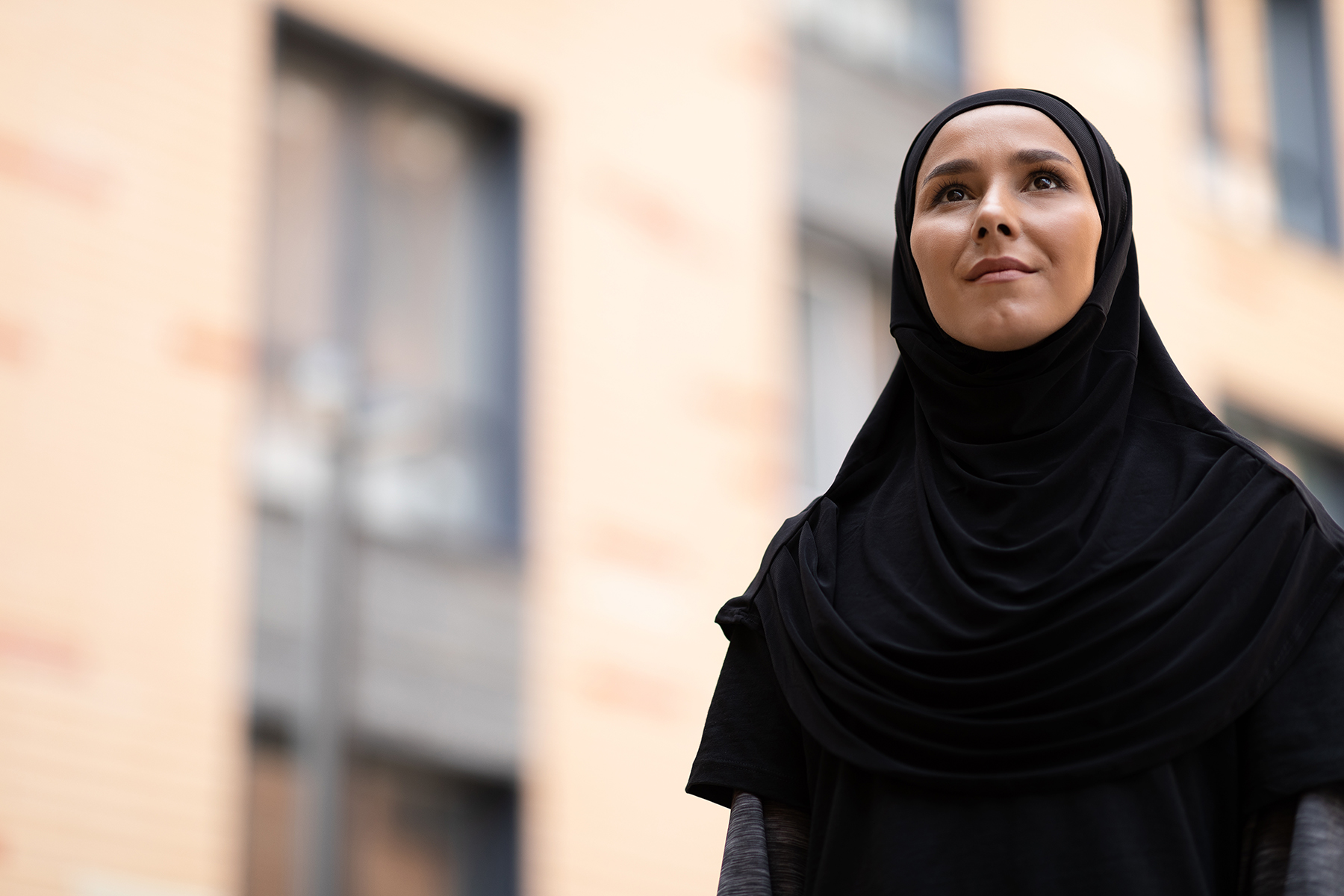What Are NFTs and Are They Shariah Compliant?
Non-fungible tokens (NFTs) generated $10.67 billion in trade value in the third quarter of 2021, up a remarkable 704% from the previous quarter.
Cryptocurrency is only on the verge of proving itself as a mainstream financial instrument. Yet, everyone—from forward-thinking companies to tech-savvy consumers—is talking about the offshoot of cryptocurrency technology called NFTs.
If you’re interested in NFTs, you might wonder whether they’re Halal or Shariah compliant. Moreover, you may wonder whether you should invest in them.
Keep reading to learn more about emerging trends within NFTs and whether they’re Shariah compliant.
What Are NFTs?
NFTs are a form of a non-interchangeable unit of data. The data of an NFT lives on a blockchain. In this way, the NFT serves as a sort of digital ledger. People can buy and sell these individual digital ledgers.
NFTs are typically associated with various types of data files. These files might include audio, videos, and photos.
Each token is uniquely identifiable. In this way, NFTs differ from cryptocurrency, such as Bitcoin.
NFTs Explained
Cryptocurrency and NFTs are both possible due to blockchain. Yet, they’re different.
Non-fungible simply means one-of-a-kind. For example, a handmade sculpture is non-fungible. With this kind of item, you’d have an interest in its uniqueness.
Conversely, paper money is an example of something that’s fungible. Even though money has serial numbers, no one takes the time to make sure that they receive a specific piece of currency based on that number.
Their only concern is that it’s the correct unit or amount. The sentiment about cryptocurrency is much the same. Also, cryptocurrencies don’t have a unique identifier like a serial number.
Is an NFT Shariah Compliant?
NFTs could serve as a high-tech financial solution for beating inflation. They’re Halal in principle. However, for Muslims, it’s critical an NFT doesn’t represent certain things.
Visual mediums are a significant part of NFTs. With this in mind, Halal NFTs can’t represent anything unlawful to see in Shariah. They also cannot represent unlawful objects or substances.
Furthermore, a Shariah compliant NFT cannot represent anything that’s sacred to portray. In this regard, non-Shariah compliant NFTs might include images of Allah or the Prophets.
NFTs that ridicule or disfigure people are also non-Shariah compliant. Likewise, Muslims should not invest in NFTs that reveal limbs and areas that the Shariah orders covered and concealed.
Fungible vs Non-fungible in Islam
Islamic jurists and schools of Islamic law have addressed the topic of fungible and non-fungible at length. They call fungibles Mithliyyat in Fiqh. Meanwhile, they refer to non-fungibles as Qimiyyat.
Fungibles
A Mithliy, or fungible, item is a property or asset that has an available identical or near-identical asset. In other words, people consider its units interchangeable, as in the earlier example of paper money.
The pricing between the units has little discrepancy or variance if any at all. Another example of Mithliy are cars of the same year, make and model.
Non-fungibles
Conversely, a Qimiy, or non-fungible, item is an identical or near-identical asset in its surah or form. An example of a Qimiy are animals of the same genus.
Another example is a custom dress that someone designs for a single person. Likewise, calligraphy and paintings are unique.
Some have translated Qimiy to mean homogenous property.
If you own a fungible item and someone destroys it, the best remedy is a like-for-like replacement. Nearly identical items are available on the market.
Yet, the remedy changes for non-fungible items. The only resolution is to receive payment for the damages. It’s not possible for someone to secure an identical replacement.
A Closer Look at NFTs
Getting back to NFTs, they’re one of the hottest current topics in the crypto space. They’re a special kind of token that represents a unique asset. Given time, you could find that NFTs could partially serve as a diverse option to a super account.
An NFT represents the scarcity of digital content. The Ethereum blockchain is the foundation of NFT technology. It allows artists, content creators, and gaming companies to attach attribution to their creations.
In this way, NFTs allow creators to digitize assets and data. They work as a database entry for all kinds of goods.
Cryptocurrencies and NFTs
Again, cryptocurrency and NFTs both use blockchain technology. However, they’re not interchangeable.
One Bitcoin is the same as another. Each Bitcoin represents a unique digital file that lives on the blockchain.
In part, this characteristic is what makes it easier to establish rightful ownership for digital art. These benefits can also extend to copyright and royalty protection. These features are the key to digital art and collectables.
What Makes NFTs Special?
With these points in mind, no two NFTs are interchangeable. Each NFT represents something different.
Using Ethereum, developers can decentralize complicated data. When creating NFTs, they use a standard much like the one called ERC20 used for fungible tokens like cryptocurrency.
Developers usually make NFTs using one of two standards. They might use either the ERC-721 or ERC-1155 multi-token standards.
These standards enable developers to deploy NFTs easily. More importantly, they allow them to create digital assets that are compatible with the broader NFT ecosystem.
Fiqh Principles and NFTs
Although it’s a developing field, Fiqh will evolve as more NFTs emerge. There are a few basic Fiqh principles you should consider when evaluating NFTs.
Overall, whether an NFT is Halal or haram rests on its composition. In most cases, an NFT in and of itself is Shariah compliant. As long as you don’t find other issues with it, it’s a Halal investment.
However, if an artist makes an NFT composed of something non-compliant or with potential extraneous issues, it could place you at risk of Shariah non-compliance. In these cases, scholars might classify it as non-compliant.
As a Muslim, it’s essential that your NFTs represent an acceptable form in Shariah. For example, it’s possible you’ve already invested in Shariah compliant stocks.
Principles for NFT Review
When reviewing NFTs, scholars might consider several principles. These principles include:
• Maliyyah
• Taqawwum
• Manfa’ah Maqsudah
• Israf and Tabdhir
• Shariah infringement
• The impact of the investment
Maliyyah is something useful for reasonable people that you can retrieve when needed. Taqawwum is a lawful benefit and utility.
Manfa’ah Maqsudah is a service that’s sensible and commonly sought after by people. Israf and Tabdhir are extravagance and wastefulness.
NFTs also can’t have the potential for wider Shariah infringements.
Also, you must consider the impact of investing in an NFT. For example, consider the remaining wealth of an individual to fulfil their Islamic duty and obligations. This point is of special importance to maintaining oneself and family.
NFTs and Islamic Culture
Slowly but surely, NFTs are gaining traction in Islamic art and culture. The first NFT market opened in 2017. It occasionally offers Islamic art NFTs.
Entrepreneurs have considered opening an NFT Islamic arts agency. Such an agency might promote Islamic artists and art.
For now, however, players in the Shariah compliant NFT arena most likely plan to see how this space develops. It will take time for new entrants to the field to adjust to an even newer medium.
Halal NFTs Moving Forward
Meanwhile, the Halal NFT market continues to evolve. As it does, these kinds of companies will have positioned themselves to ensure that Islamic art and artists have a global platform.
There are already some agencies creating Islamic art and NFTs. However, there are very few Halal NFT marketplaces.
So far, there are few options for NFTs in the Islamic space. However, some Halal businesspersons want to fill the gap. We’ll have a look at two of them in a moment.
NFTs and the Future of Shariah Compliance
There’s also another interesting use case for NFTs and Shariah compliance. NFTs could have big and positive implications for Halal certification.
The idea of Halal is more than identifying the sources of food and beverages. It’s also the process and standards related to cleanliness, safety, and quality assurance.
The Halal certification process verifies that products have met Islamic dietary guidelines. This space is growing rapidly.
This growth presents a remarkable opportunity for blockchain-enabled non-fungible tokens. There’s a case for making use of NFTs in the Halal supply chain.
In the Halal supply chain, NFTs could function as immutable digital signatures. They’d provide authentication and verification, eliminating the need for third-party certification.
NFTs and Halal Goods
In popular culture, people know NFTs for their use with collectable items like art and video games. Still, there’s a further use case for them in Halal supply chains.
Companies can use NFTs to track physical Halal products. These items could range from foods to other consumer goods. Companies could pair these items with a digital twin, providing instant verification of adherence to Halal principles.
Benefits of NFTs for Halal Goods
NFTs offer a way to tokenize the supply chain and provide trust and security. They can help to eliminate counterfeit goods and deceptive marketing.
Within the Halal supply chain, NFTs can provide additional security and traceability. Moreover, they can promote responsibility in the Halal food marketplace.
As for security, NFTs can make the transfer of information between supply chain interests immutable. Data about items moving through the Halal supply chain would live in smart contracts that no one can alter without authorization.
The Promise of NFTs
More importantly, NFTs can provide traceability all the way from company to consumer. This kind of technology already exists. Engineers call it dApps, or decentralized applications.
With dApps, companies and people can track products throughout the supply chain. More importantly, dApps will ensure data integrity.
The emergence of the Internet of Things and 5G networks make this process more and more transparent. They also make tracing products automated and error-free.
Where to Buy NFTs
As for NFT art, this space is just coming into existence. Yet, it’s vibrant and growing.
Let’s have a look at two Shariah compliant NFT marketplaces.
Funoon
Funoon is a Shariah compliant NFT marketplace. The company aims to diversify Islamic portfolios and increase awareness of NFTs.
The UK-based company offers digital Islamic art, culture, and sports assets. It showcases NFT goods in the form of image and video files.
Souq NFT
Souq NFT promotes itself as an ethical and inclusive DeFi (decentralized finance) ecosystem. It’s an NFT marketplace with a focus on ethical and Halal digital art and other NFT assets.
The Souq NFT artists must follow audio, image, and video content guidelines. For example, the NFT platform does not allow hate speech, racism, or nudity.
Souq NFT artists must also verify that their works are original. They’re not allowed to copy existing NFTs. With these guidelines, the operators of Souq NFT hope a vibrant DeFi and NFT ecosystem will take shape on their platform.
How to Buy NFTs
It’s vital to exercise caution when venturing into the world of NFTs. NFTs are a new and loosely regulated commodity. In some instances, a malicious actor might sell a worthless NFT then disappear.
Also, malicious NFTs can pose a security risk. For instance, they could expose your IP address.
As with any other type of market, there are good and bad players in the NFT space. Now, however, even some well-known investment firms are getting involved with Shariah compliant NFTs.
Security concerns aside, let’s look at the process of investing in a legitimate NFT. First, you must buy it using cryptocurrency. You must have an Ethereum cryptocurrency wallet to participate in an NFT marketplace.
Navigating NFT Marketplaces
Now, you can visit your chosen NFT marketplace and connect your Ethereum cryptocurrency wallet. After registering your account, you can usually browse user profiles to view NFTs others have collected.
Your profile page would typically serve to track your marketplace activity and favourite NFTs. At this stage, you can also browse the marketplace to look for potential NFT purchases.
If you later want to sell any of your NFT purchases, you’d put them up for sale on the marketplace. Most likely, you’ll incur a fee for the sale. Accordingly, it’s essential to ensure you understand marketplace fees wholly before selling your NFT.
Learn More About Shariah Compliant Finance
Now you know more about the NFT and how it relates to Shariah compliance. Still, knowledge is for sharing. Please feel free to read our article about teaching children about Halal supers.
Share this
You May Also Like
These Related Stories

How can you be sure our investments are Shariah-compliant

7 Halal Ethical Investment Ideas for FY2021-FY2022


